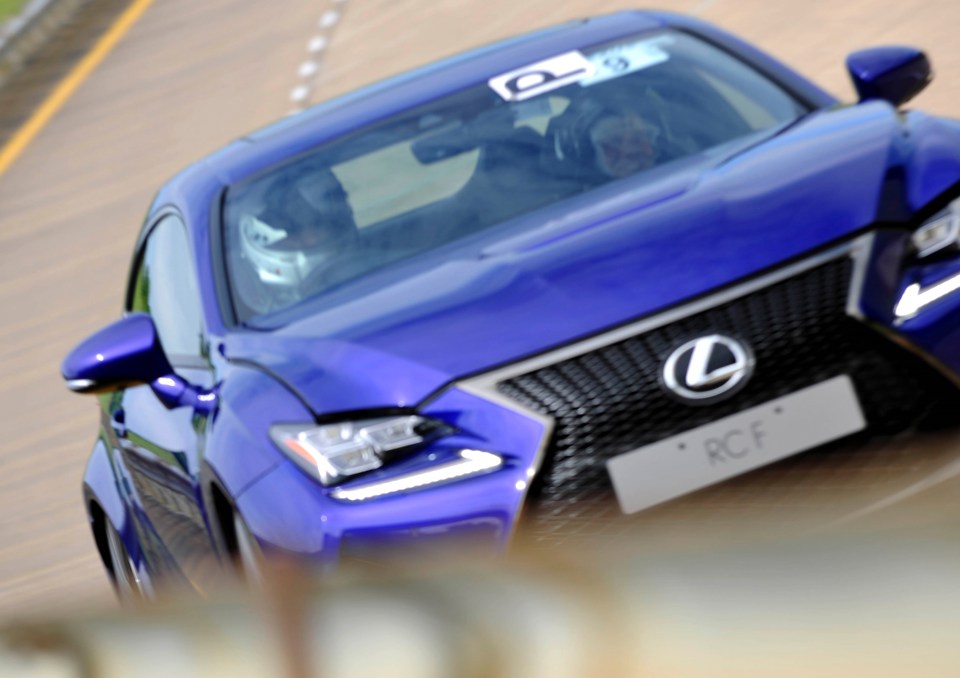Getting business centres to “look local and sell local” is the focus this year for Toyota and Lexus Fleet Services, general manager Neil Broad told Fleet News at Company Car in Action.
Fleet News: What are your expectations for the rest of 2015?
Neil Broad: We had a very strong year last year and we’re continuing that progress this year. At the end of May we were 20% up on both brands year on year so we’re looking to sustain that growth.
We improved our fleet market share last year based on SMMT figures, but it’s fair to say there are areas of the fleet market that we don’t particularly wish to explore at discount levels and we would walk away from that so our fleet market share depends on the mix of business that’s available. We tend to look more at how we perform within the profitable channels.
The fleet market in general continues to be strong. There is a reasonable amount of fleet and consumer confidence. Fleets are certainly not holding off buying and there is a steady amount of business out there.
FN: Are you introducing, or have you recently introduced, any new initiatives for fleets?
NB: One of our key watchwords in fleet this year is ‘localisation’. Toyota has 70 business centres and Lexus has 40 and what we don’t want as a brand is those centres looking for national supply arrangements where they are doing long distance delivering to customers they never see. We would rather they were energised by local relationships where there is a better opportunity for customer service referral and aftersales retention.
We’ve introduced a new broker programme which is aimed at Toyota GB doing direct invoice deals with a select few brokers that we trust to work with our terms and work with our customer base, and what we insist on is delivery by the dealer that happens to be local to the customer.
The other area we’re exploring with our business centre network is improved penetration within the manufacture finance contract hire market, which we call Business Drive. Currently we’re being very aggressive on Toyota with Business Drive where we’re offering free maintenance on top of a very aggressive monthly lease rate on selected vehicles within the range - Auris and Avensis in particular. That again is an effort to stimulate our business centres to look local and to sell local.
We’ve had a consistent Motability programme over the last two years. We set our stall at the start of the year to maintain or improve our rates throughout the year so we’ve made a commitment to Motability and to our dealer network to have that sustained presence. We’re by no means the biggest Motability manufacturer out there but where we have the right products we want to make the most of it.
The other element we wish to stimulate through the back end of this year is an increased professionalism in LCV sales and marketing, both within the manufacturer and within our dealer network, pending the introduction of an all new Proace range next year and an all new Hilux next year.
What new fleet models has Toyota launched/is due to launch this year?
The Avensis, which is on sale from July, has had a major overhaul. We’ve introduced new 1.6-litre and 2.0-litre litre diesel engines and we’ve completely restyled the exterior and interior.
The Auris, which will be on sale later this year, has a new 1.2-litre petrol turbo engine and also shares the 1.6-litre diesel introduced to the Avensis, which further lowers CO2 across our range.
The Mirai hydrogen fuel cell car will be on sale from September in very limited numbers. It will be very controlled with sales by Toyota GB through to selected partners to run and appraise the vehicle for us. It’s a controlled launch because of infrastructure issues that surround it at the moment. It’s a chicken and egg situation - it will become a commercial opportunity for fuel companies when vehicles are on the road but you can’t get vehicles on the road without that investment taking place so we’re working as part of the HyFive project to look at hydrogen infrastructure investment and future planning.
I think hydrogen will be the technology of the next 20 years and, in our eyes, more so than electric because it’s a more efficient power delivery. It’s easier to store and actually it’s greener than electric would be because it’s easier to generate.
The further Toyota development is we’ve got a whole new Prius launching at the start of next year which is the first model in our new global architecture, TNGA. It will spearhead the next generation of Toyota product so it should be an exciting time for us.
What new fleet models has Lexus launched/is due to launch this year?
There is a lot of standout, sporty, aggressive looking Lexus models coming to market over the next few months, followed by, at the end of the year, new RX which takes certain styling cues from the NX but in a big brother fashion. RX will be a great new introduction for us and has particular resonance in the fleet market.



















Login to comment
Comments
No comments have been made yet.